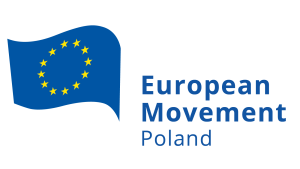At the June 2022 conference in Oslo, a group of several “assertive” Polish organizations (ANGOs) launched the idea of institutionalization of a partnered governance between civil society and prodemocratic and pro-European politicians.[1] Without more effective dialogue and cooperation between civil society organizations and democratic politicians there is little chance of standing up to autocracy.
Eastern Europe, and especially Poland, is currently scoring lowest in Europe with regard to the level of public dialogue, public consultations and the influence of civil society organizations on political decisions of the state (according to the Bertelsmann Index).[2] Weak cooperation is a serious problem in all post-communist countries. The dream of an effective institutionalization of dialogue between the state or local self-government and civil society is still waiting to come true. The Poles have not managed to build an effective state and effective democracy (e.g. according to the parameters used by Christian Welzel), although – at the end of the 1990s – they boasted a good level of individual capital (60-65% according to the World Values Survey).
That said, there is evidence to the effect that – partly due to the pandemic, and partly due to the emigration of many Ukrainians to Poland – prosocial attitudes and social capital began to rise in 2020s, trust in strangers increased, (according to the Bertelsmann Index, by 11%), and the participation in civil society organizations (hereinafter CSO) showed a rising curve – this in spite of an extreme socio-political polarization.
We cannot waste the new opportunity to re-energize civil society organizations and reclaim a democratic partnership and dialogue. Poland has a unique chance to mobilize progressive politicians and civil society to motivate and strengthen one another.
The aim of the proposed SUMMIT is threefold: 1) to strengthen civic initiatives in Eastern Europe 2) to register and prevent abuses of the state of law; 3) to promote and improve strategies of cooperation between democratic politicians and civil society.
We wish to request seed funding towards organizing a summit between representatives of civic initiatives in Poland and Hungary on the one hand, and Scandinavian democrats and inetrnational observers on the other. The summit would take place at the end of February/beginning of March 2023 and would include invited representatives of civic organizations from Eastern Europe, Scandinavia and the US.
Selected list of questions:
How to renew and strengthen a dialogue and partnership between civil society and pro-democratic politicians?
How to broaden the social dialogue with umbrella organizations (independent research institutions, the judiciary, social media, women’s groups, ethnic and religious minorities, environmental initiatives etc.?)
What are the lessons from the Hungarian Orbanization? How not to repeat it in Poland?
How can the civil society become more efficacious in registering all state abuses of the rule of law?
What can we learn from the Scandinavian model in terms of partnerships between politicians and the civil society organizations?
[1] Standing up to autocracy – Centre for Development and the Environment (uio.no)
[2] A decade earlier, Poland was nr. 18th in the same category, according to In the Bertelsmann index.

